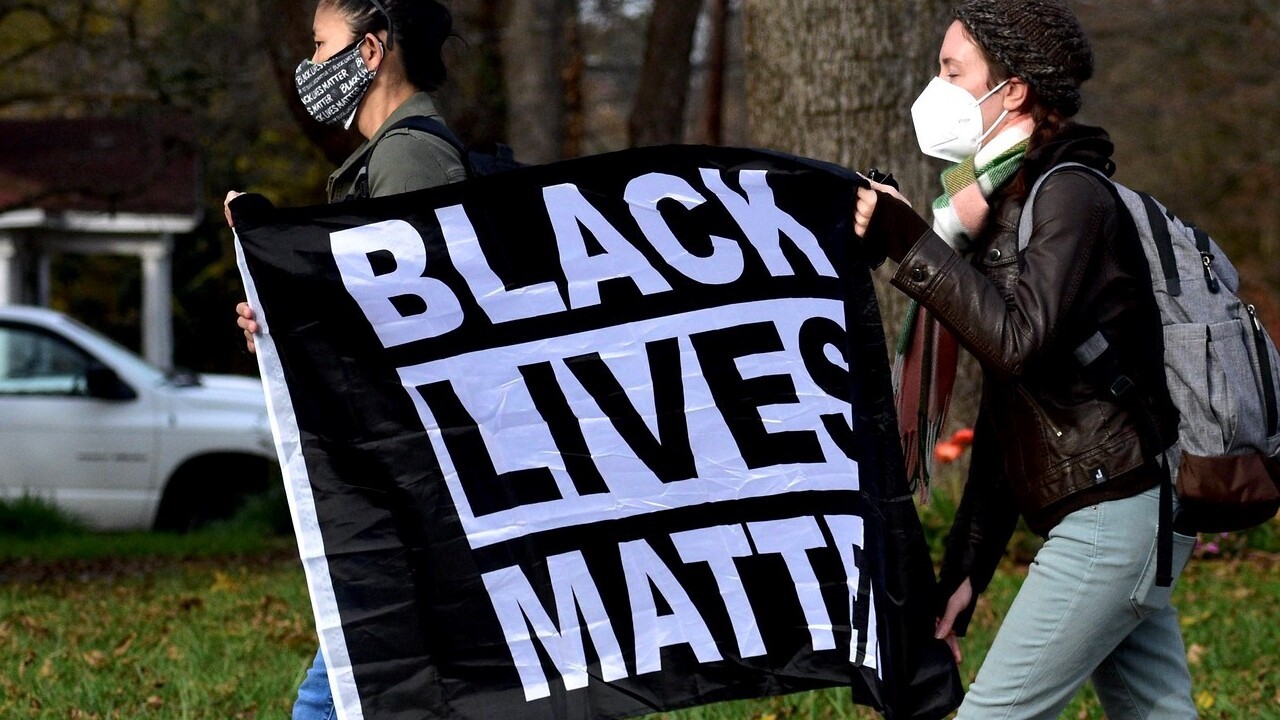ARLINGTON HEIGHTS, IL (January 10, 2022) – A new poll by The Heartland Institute and Rasmussen Reports finds that Donald Trump would beat Joe Biden in a rematch of the 2020 election if it were held today.
The survey of 1,016 likely voters, completed January 5, 2020, found that 46% would vote for Trump, 40% would vote for Biden, and 10% would vote for neither candidate. Another 2% each said they were not sure or would not vote if that was the contest.
In the crosstabs of this poll, 14% of Democrats, 81% of Republicans, and 45% of Independents would choose Trump. The figures for Biden were 75% of Democrats, 13% of Republicans, and 29% of Independents. Trump and Biden tied for the percentage of the women’s vote at 43%. The percentage of Hispanics that would vote for Trump was 38% vs 41% for Biden – within the margin of error of plus-or-minus 3% for this poll with a 95% level of confidence.
“Less than one year into his presidency, 52 percent of likely voters have an unfavorable impression of President Joe Biden. This is astounding, given the fact that the mainstream has given Biden the benefit of the doubt so often and glossed over his administration’s utter failures concerning the pandemic, inflation, foreign policy, etc.,” said Chris Talgo, senior editor and research fellow at The Heartland Institute. “On the other hand, 51 percent of likely voters now have a favorable opinion of former President Trump. In fact, more likely voters would vote for Trump over Biden if the next presidential election were held today. It seems like American voters are experiencing a classic case of voter’s remorse.”
A strong majority of likely voters also have an unfavorable impression of President Biden one year into his presidency, and the negative impression is deep: 42% have a “very unfavorable” impression and 10% a “somewhat unfavorable” impression of Biden. Just 28% said they have a “very favorable” impression and 18% said their impression was “somewhat favorable.
Former President Trump’s favorable/unfavorable numbers were slightly better than Biden’s: 31% have a “very favorable” impression of Trump and 20% “somewhat favorable.” Another 10% have a “somewhat unfavorable” impression and 37% have a “very unfavorable” impression of Trump.
National Survey of 1,016 Likely Voters on Impressions of President Biden vs. Former President Trump
Conducted January 5, 2022
By The Heartland Institute and Rasmussen Reports
Click here to see the poll (Excel)
1. Do you have a very favorable, somewhat favorable, somewhat unfavorable or very unfavorable impression of Joe Biden?
28% – very favorable
18% – somewhat favorable
10% – somewhat unfavorable
42% – very unfavorable
3% – you are not sure
INTERESTING CROSSTAB: Very or somewhat favorable support by party affiliation was as follows: Democrats (82%), Republicans (18%), Independents (35%).
2. Do you have a very favorable, somewhat favorable, somewhat unfavorable or very unfavorable impression of Donald Trump?
31% – very favorable
20% – somewhat favorable
10% – somewhat unfavorable
37% – very unfavorable
2% – you are not sure
INTERESTING CROSSTAB: Very or somewhat favorable support by party affiliation was as follows: Democrats (22%), Republicans (83%), Independents (49%).
3. If the next U.S. presidential election were held today, and President Joe Biden were running against former President Donald Trump, who would you be most likely to vote for?
40% – Joe Biden
46% – Donald Trump
10% – another candidate
2% – wouldn’t vote
2% – not sure
INTERESTING CROSSTABS: Percentage of party affiliation that chose Trump: Democrats (14%), Republicans (81%), Independents (45%). Percentage of party affiliation that chose Biden: Democrats (75%), Republicans (13%), Independents (29%).
Percentage of women who chose Trump: 43%. Percentage of women who chose Biden: 43%
Percentage of Hispanics who chose Trump: 38%. Percentage of Hispanics who chose Biden: 41%
NOTE: Margin of Sampling Error, +/- 3 percentage points with a 95% level of confidence
Chris Talgo (CTalgo@heartland.org) is the editorial director and a research fellow at The Heartland Institute, as well as a researcher and contributing editor at StoppingSocialism.com.






